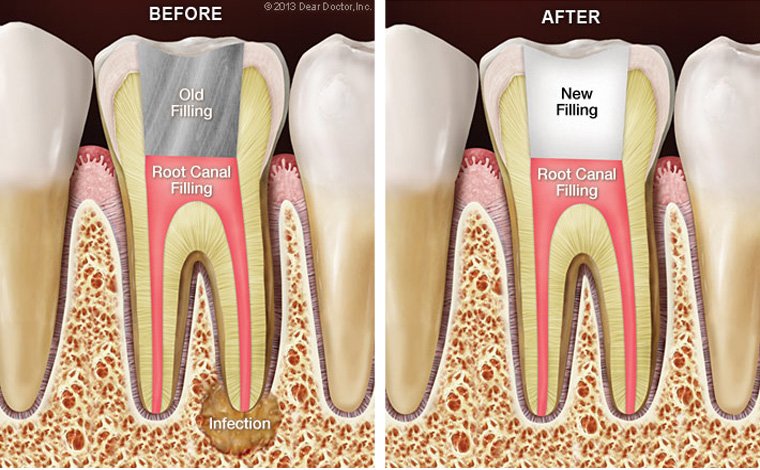What is an Apicectomy?
An apicectomy is a minor surgical procedure where the tip of the root of a tooth, called the apex, is removed.
It is usually carried out under local anaesthetic and is recommended when infection or cysts remain after a root canal treatment, or when the dentist cannot seal the root tip with a standard filling.
Please note that an apicectomy cannot work without a root filling, which must always be carried out first.
What is Involved?
Our specialist endodontist will begin by numbing the tooth and the surrounding area.
A small flap of gum is lifted to access the root. The tip of the root, along with a small amount of surrounding bone and any infected tissue, is then removed.
The area is carefully cleaned and disinfected. The root tip is shortened by a few millimetres and, in some cases, a tiny filling is placed at the end of the root to seal it.
Finally, the gum is stitched back into place using dissolvable stitches.
What to Expect Afterwards?
It is advisable to have someone with you when you leave the clinic.
You may need to take some time off work because mild discomfort and swelling are common for a few days after surgery. Painkillers and sometimes antibiotics will be prescribed. It is very important to complete the full course and follow the instructions carefully.
Some bleeding may occur as the anaesthetic wears off. You can manage this by gently biting on a clean handkerchief for five minutes. If bleeding continues, repeat the process. If you remain concerned, please contact the clinic immediately.
Avoid smoking as it can slow down healing.
A small amount of gum recession around the treated tooth is normal, especially if it already has a crown. In some cases, a faint scar line may appear higher up on the gum.
Risks and Complications
Like any surgery, apicectomy has some risks and possible complications.
- The procedure may not be successful if the existing root filling is of poor quality or if the root has a split or damage.
- A small amount of gum recession is common.
- In some cases, the operation may need to be repeated, which can reduce the long-term chance of saving the tooth.
- With upper teeth, infection may enter the sinus area and cause further problems.
- With lower teeth, there is a small risk of injury to sensory nerves which may cause numbness or tingling in the lower lip and tongue. This usually improves within weeks, but in rare cases, the numbness can be permanent.


